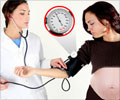It is common for certain cultures to believe that child birth is a form of ‘re-birth,’ in reference to the trauma associated with child-birth.
Today, child birth it is far more easier than it ever was in the past, but pregnancy- related maternal deaths are still not uncommon. It has been documented that hypertension during pregnancy is the leading cause of maternal deaths in developed countries such as the UK.And now for some good news! Evidence supports the use of low-dose Aspirin to counter the effects of hypertension during pregnancy.
Hypertension & Pregnancy
Hypertension in pregnant women can manifest as any of the following conditions -
• Chronic hypertension – when hypertension is present before 20 weeks of pregnancy
• Gestational hypertension – when hypertension appears during pregnancy, after 20 weeks of gestation. If it presents with proteinuria, it is known as pre-eclampsia
• Eclampsia- Hypertension associated with seizures
• HELLP syndrome- characterized by Hemolysis, Elevated Liver Enzymes and Low Platelet count.
• Significant proteinuria- When the urinary protein:creatinine ratio is greater than 30 mg/mmol or when a validated 24-hour urine collection result records greater than 300 mg protein
Hypertension can develop suddenly, at anytime during pregnancy.
Who’s at risk?
Moderate risk factors include –
• First pregnancy
• Pregnancy in older women
• BMI>35 during early pregnancy
• Multiple pregnancy
• A family history of pre eclampsia
Higher risks and complications are often seen in those who have already been diagnosed with hypertension or diabetes
Health implications
Hypertension and associated conditions such as pre- eclampsia have serious health implications. They include-
• Premature babies
• Still- borns
• Smaller than average sized babies
• Risk of mothers developing hypertension, cardiac -related problems or kidney-related problems later in life
It is therefore important for a woman,
• who is pregnant or
• who is planning a pregnancy and
• who is at risk of developing hypertension or
• who is already hypertensive to receive proper ante- and post- natal care and, to be properly monitored all through her pregnancy and even beyond.
NICE Guidelines
Recently the National Institute for Health and Clinical Excellence (NICE) has published a set of guidelines for health care professionals to treat and guide women suffering from hypertension during pregnancy, or who are at risk to develop hypertension during pregnancy.
The NICE guidelines can be seen as a move to -
• provide optimum care for hypertension –prone women
• to raise awareness regarding the significance of long- term monitoring of these women to make them aware of the consequences of gestational hypertension.
Recommendations for health care professionals-
• Advising high risk pregnant women to take 75mg of low-dose aspirin each day, starting from the twelfth week of pregnancy until birth. This would reduce their hypertension –related risks considerably.
• Informing these women that angiotensin-converting enzyme (ACE) inhibitors and angiotensin II receptor blockers (ARBs) can be used to treat and control hypertension in non-pregnant women. But if these are taken by pregnant women, the chances of developing congenital abnormalities are higher .More suitable options must be discussed with them.
• Offering services such as hospital admission, blood tests, BP monitoring and treatment
• Carrying out ultrasonography to measure fetal growth and other parameters
• Offering the option of childbirth after 34 weeks to women with pre-eclampsia, but only after consultation with specialist
• Administering steroids ante- natally, if necessary, to the woman to help mature the baby’s lungs.
Recommendations for hypertensive pregnant women & those at risk
• Achieve a healthy BMI before pregnancy
• Restrict salt intake
• Take the required dietary supplements including anti-oxidants and magnesium
Stephen Walkinshaw, consultant in maternal and fetal medicine at Liverpool Women's Hospital who happened to chair the development group for this guideline, said: "Standards of practice for treating and managing hypertension during pregnancy can vary from region to region. What this NICE guideline does is set out a clear pathway of care to guarantee that women are looked after in the best way possible no matter where they live. It will also ensure mums-to-be are given clear information by their doctor or midwife about their risks of developing such a condition and what is and is not effective in preventing these from occurring. It is important that both women and NHS staff have the knowledge to make informed decisions about care and treatment to ensure the best outcome for mother and child."
NICE Guidelines have been put in place after scaling through adequate evidence that supports the administration of low dose aspirin (75 mg) to control pre-eclampsia in pregnant women.
This, along with elective Caesarian Section at 34 weeks for women who are severely hypertensive, should bring forth considerable reduction in the mortality among pregnant women. However, spreading awareness and following the guidelines holds the key!
Source-Medindia














